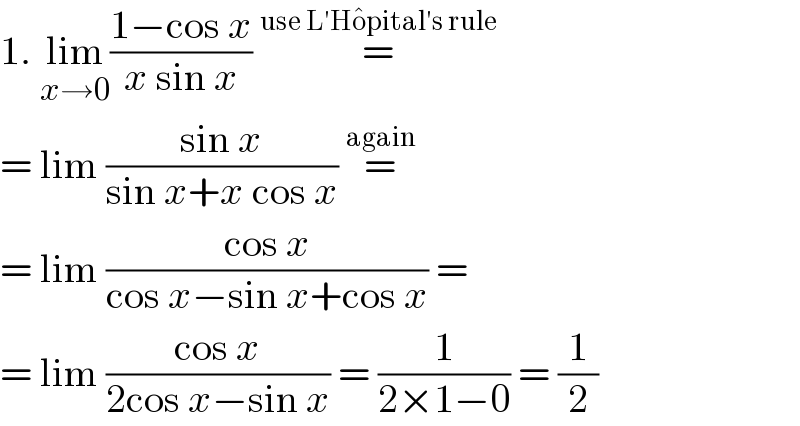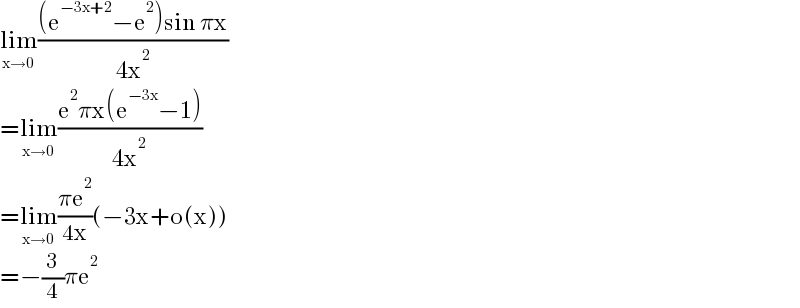
Question and Answers Forum
Question Number 167699 by HongKing last updated on 23/Mar/22

Answered by alephzero last updated on 23/Mar/22

Answered by alephzero last updated on 23/Mar/22

Answered by qaz last updated on 23/Mar/22

Answered by malwan last updated on 24/Mar/22

